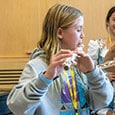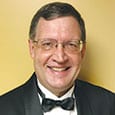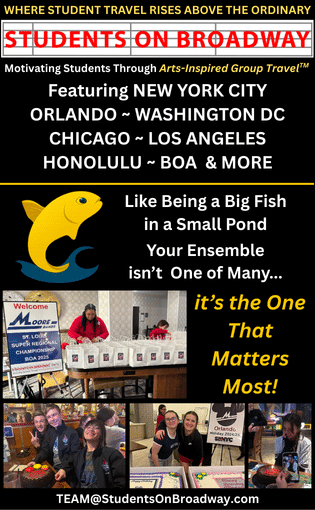When interviewing outstanding musicians for The Instrumentalist, I usually ask about the moment when they knew their path pointed to a life in music. For some the moment struck like a lightning bolt, as a memorable director or a remarkable performance changed their lives. More often, these future musical stars had no idea where small moments, a word of encouragement or an unexpected chance to conduct, would lead. I looked back at conversations we have had with some legendary figures in the band world. Their stories remind us that each day brings not just another rehearsal but the possibility of inspiring others to greatness.
Col. Arnald D. Gabriel: “I was working in the canning factory after coming back from World War II and had no idea that I could become a professional musician. You can imagine what three years in the infantry do to a young man’s mind. I was bitter, to be perfectly honest about it, and I thought at that time there was no way I could compete with those musicians who had played in the military bands, or those students who were graduating from high school and going directly on to college.
“My high school band director, Burton Stanley, said I really ought to go to college. I told him, No I’m working here at the canning factory, and I just can’t compete. I’ve not been on the books academically or on my horn musically. Well, he simply went to Ithaca, paid my matriculation fee, and talked to Walter Beeler, who agreed to accept me without audition. So when he did that, I practiced religiously. I even took my instrument along to the canning factory.” (October 1981)
Alfred Reed: “From a very early age I felt the desire, overwhelming at times, to communicate my ideas to other people….After seeing an instrument demonstration at school, I suppose it was only natural to tell my parents that I wanted to play the cornet. I was just 10 years old, and did not as yet have any bent towards writing. That came later, when I discovered I could write music easily and was better at it than I was at playing an instrument. From then on it was the pencil, rather than the horn, and the ideas began to come faster and faster. I always wanted people to listen to them. I wanted to share these ideas.” (October 1985)
John Paynter: “I think the turning point for me was when I was in the 9th grade and Bernard Stepner came to town as the band director. After just one year he was drafted, but in that short time he influenced a lot of us; and out of that small class we had nearly 20 people who did well in music. Being born and raised in a small town was very fortunate for me because it was the kind of setting where there was absolutely no restriction on opportunities.” (July 1979)
W. Francis McBeth: “As a junior high student in West Texas, I though something was wrong with me because I was the only human, I knew outside my family who like jazz and serious music. When a movie came out about the life of Schumann, it was the first time in my life I had heard symphonic music other than through the scratches of the old 78s at home. The scratches were often louder than the music. In the movie, with Robert Walker playing Schumann, Katharine Hepburn as Clara, and Van Heflen as Brahms, there was a good sound system and the music was played by a symphony orchestra. The orchestra played a lot, and I stayed through the film twice that day just to hear the orchestra. It was one of the greatest things that ever happened to me. (August 1998)





